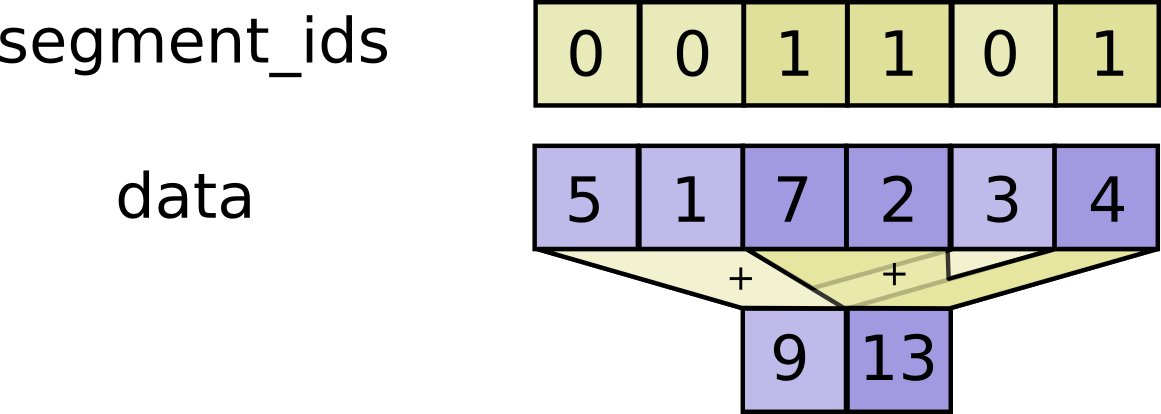tf.math.unsorted_segment_sum | TensorFlow v2.16.1 (original) (raw)
tf.math.unsorted_segment_sum
Stay organized with collections Save and categorize content based on your preferences.
Computes the sum along segments of a tensor.
View aliases
Compat aliases for migration
SeeMigration guide for more details.
tf.compat.v1.math.unsorted_segment_sum, tf.compat.v1.unsorted_segment_sum
tf.math.unsorted_segment_sum(
data: Annotated[Any, tf.raw_ops.Any],
segment_ids: Annotated[Any, tf.raw_ops.Any],
num_segments: Annotated[Any, tf.raw_ops.Any],
name=None
) -> Annotated[Any, tf.raw_ops.Any]
Readthe section on segmentationfor an explanation of segments.
Computes a tensor such that \(output[i] = \sum_{j...} data[j...]\) where the sum is over tuples j... such that segment_ids[j...] == i. Unlike SegmentSum, segment_idsneed not be sorted and need not cover all values in the full range of valid values.
If the sum is empty for a given segment ID i, output[i] = 0. If the given segment ID i is negative, the value is dropped and will not be added to the sum of the segment.
num_segments should equal the number of distinct segment IDs.

c = [[1,2,3,4], [5,6,7,8], [4,3,2,1]]
tf.math.unsorted_segment_sum(c, [0, 1, 0], num_segments=2).numpy()
array([[5, 5, 5, 5],
[5, 6, 7, 8]], dtype=int32)
| Args | |
|---|---|
| data | A Tensor. Must be one of the following types: float32, float64, int32, uint8, int16, int8, complex64, int64, qint8, quint8, qint32, bfloat16, qint16, quint16, uint16, complex128, half, uint32, uint64. |
| segment_ids | A Tensor. Must be one of the following types: int16, int32, int64. A tensor whose shape is a prefix of data.shape. The values must be less than num_segments. |
| num_segments | A Tensor. Must be one of the following types: int32, int64. |
| name | A name for the operation (optional). |
| Returns |
|---|
| A Tensor. Has the same type as data. |